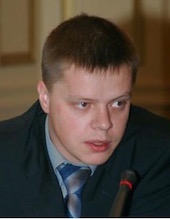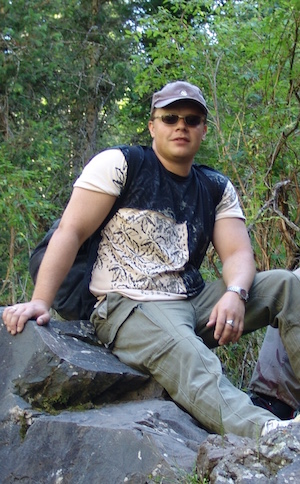 Oleg Smolyakov
Oleg Smolyakov
Deputy Governor
Natinal Bank of Kazahstan
Transition Economy Program (’01)
What are your areas of specialization and how did you come to work in this areas?
It has been already 18 years since I started working in the National Bank of Kazakhstan, initially as the leading economist. For many people it may seem ridiculous to spend all these years in one organization (at least from a European or American point of view). But there is a common belief among central bankers that our institutions and the people working there are slightly different. Central banks create incentives to study, to make knowledge deeper and more diverse, as well as allow establishing ties to a broad community of professionals. These make our careers in central banks more like a life-long choice. That is my choice as well. I have specialized in a variety of issues including balance of payments compilation, analysis and forecast; support of exchange rate and financial stability policy decision making; and capital account liberalization strategy. In the past seven years I have coordinated the assessment of risks to financial stability and the preparation of the Financial Stability Report, the elaboration of macroprudential policy initiatives and Asset Management Corporation (AMC) Strategy for the resolution of high non-performing loans, and a long-term concept of financial sector development. There are not many other examples of organizations that allow you to get such a diverse experience.
You have recently been appointed as Deputy Governor of the National Bank of Kazakhstan. What are your main responsibilities and duties?
I continue to work in the field of financial stability risks assessment and report preparation. My new challenging responsibilities include economic integration within the Eurasian Economic Union, insurance sector supervision, financial institutions liquidation and some other not less interesting issues.
In your current capacity, what do you see as the main opportunities and challenges for Kazakhstan over the course of the next five to ten years?
To build the public loyalty (in addition to confidence) to the bankers and financial sector as a whole – this is the opportunity as well as the challenge.
What led you to GRIPS? What is the most important thing you got out of your studies here, and how has your experience at GRIPS prepared you for future endeavours?
After four years in the National Bank of Kazakhstan I felt that to become more proficient and competitive there was a need to pursue further graduate studies in a recognized, balanced master’s program of high standards. GRIPS, its multifaceted Transition Economy Program, and the IMF scholarship contributed to my decision to apply to the Institute where excellent lecturers like Prof. Kenichi Ohno, Prof. Sunku Hahn and others allowed to match personal ambitions with program sophistication.
What are your fondest memories of your time spent at GRIPS? And what do you miss about Japan?
I think that the paper won’t be enough to list all the memories. I remember the cordial welcome, especially during first days in Japan when the world seemed completely different from where we live. Remarkable were the experiences with the Fuji trip as well as everyday 2-hours-Fuji-like-trips to university – then housed in the temporary campus in Wakamatsu-cho, Shinjuku – by bike, train and foot from Saitama ;)….. So it was a good mixture of study, fun, sport exercises and new experiences and traditions.
How do you maintain a balance between your work and the rest of your life? And what is your favorite thing to do when you are not working?
At this stage with my recent appointment to Deputy Governor there is no balance as my new responsibilities require full-time involvement. But when not working I prefer alpine skiing and weight-lifting. Also I enjoy teaching in our joint National Bank and Economic University Master Program. At the same time my 4 year-old son is my most important “project” to which I try to devote my best efforts.
If you could give one piece of advice to anyone considering studying at GRIPS what would it be?
GRIPS provides an excellent experience and is a good starting point for those who consider a career in public policy making.





